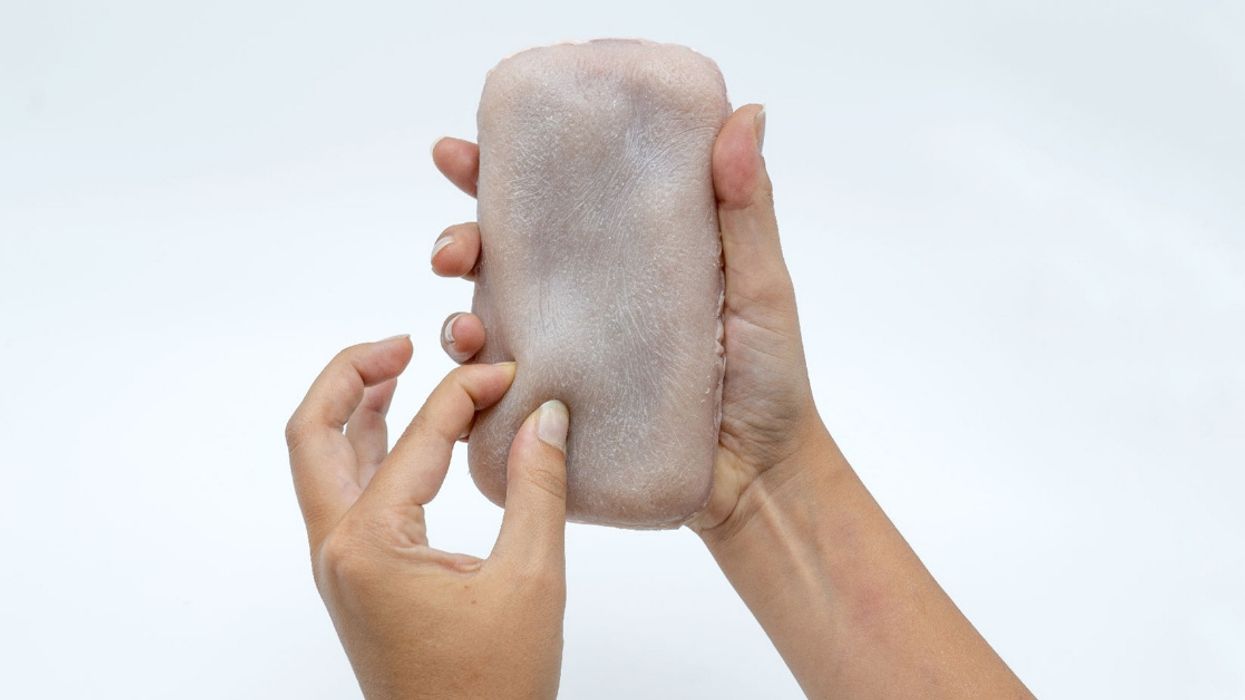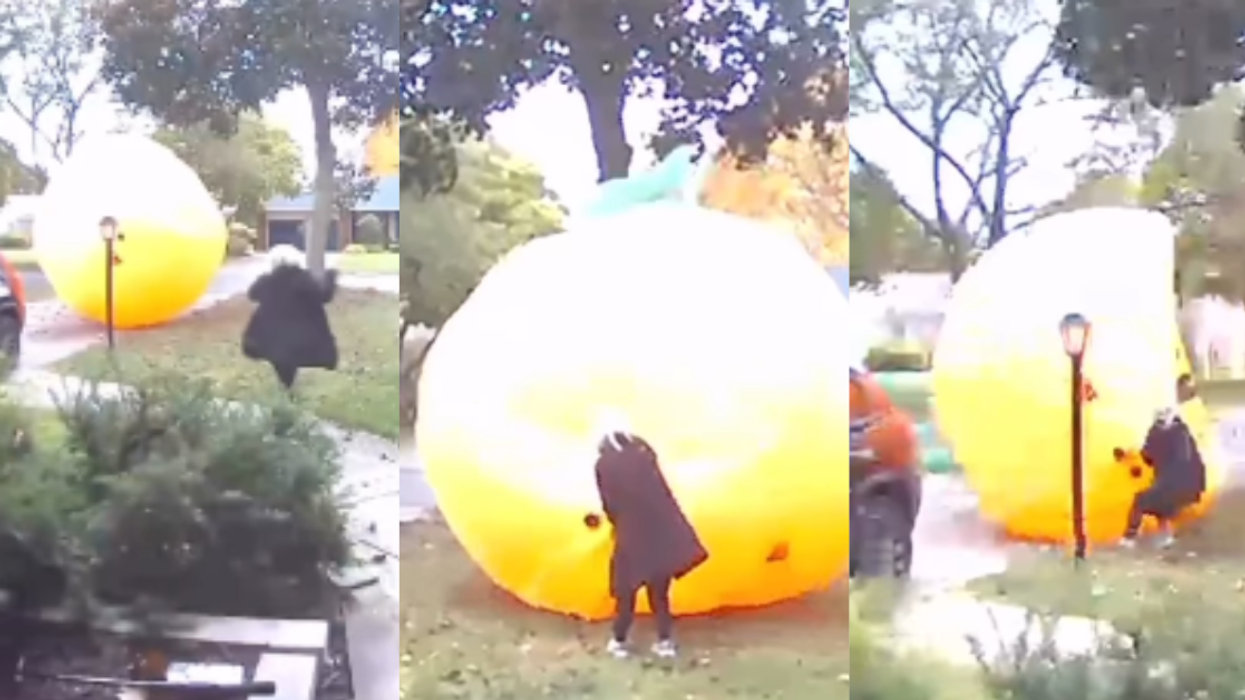Scientists have developed an “artificial skin" that they say can wrap around devices such as smartphones and make them ticklish.
The prototype, which has been designed to look like and mimic human skin, responds to different forms of human contact such as tickling, caressing and pinching.
Called Skin-On interface, it can be attached to mobile phones, wearable devices and laptop touchpads.
The technology was developed by researchers at the University of Bristol in partnership with Telecomm ParisTech and Sorbonne University in Paris.
The team says their work opens the door for a possible future with “anthropomorphic devices" – where gizmos have human characteristics.

Dr. Anne Roudaut, associate professor at the University of Bristol, told the PA news agency: “It [the artificial skin] may look unconventional probably because we are used to our senseless and rigid casings, but we feel there are strong advantages of using more malleable technologies.
“And the familiarity of the skin provides a more natural interface for end-users."
The artificial skin was created using two layers of silicone – dubbed “dermis" and “hypodermis" layers – with an electrode layer in the middle made up of ultra-thin wires that act as sensors.
Two different types of silicone were dipped in pigment and moulded to give the creation a skin-like texture.
The researchers said their artificial skin allows devices to “feel the user's grasp" and has the ability “to detect interactions such as tickling, caressing, even twisting and pinching."

One of the things the researchers said they were able to demonstrate was “tactile emotions" with use of emojis.
Marc Teyssier, a PhD student at Telecomm ParisTech and lead study author, said: “A strong grip conveys anger while tickling the skin displays a laughing emoji and tapping creates a surprised emoji."
He told PA: “This skin has a subtle surface texture – the sensing is performed in the dermis and the hypodermis layer (fat layer) and the elasticity is what allows us to perform expressive gestures such as pinching."
The team believe that their work, which is being presented at the 32nd ACM User Interface Software and Technology Symposium in the U.S., could allow people to have a richer emotional experience while using mobile phones or smartwatches.
Teyssier added: “When we are talking to someone face-to-face, we sometimes use touch to convey emotions and more generally enrich the discourse.
“Now that mediated communication is performed through the devices, we lost this communication modality.

“With this project, we tried to combine the best of the two.
“The prototypes we developed propose a possible future with anthropomorphic devices."
While the concept of artificial skin has been explored in the field of robotics as scientists attempt to develop robots that look and act like humans, the researchers said they were more interested in working with everyday devices.
Roudaut added: “We have seen many works trying to augment human with parts of machines, here we look at the other way around and try to make the devices we use every day more like us, ie, human-like."











 @winnieharlow/Instagram
@winnieharlow/Instagram






 @realDonaldTrump/Truth Social
@realDonaldTrump/Truth Social
